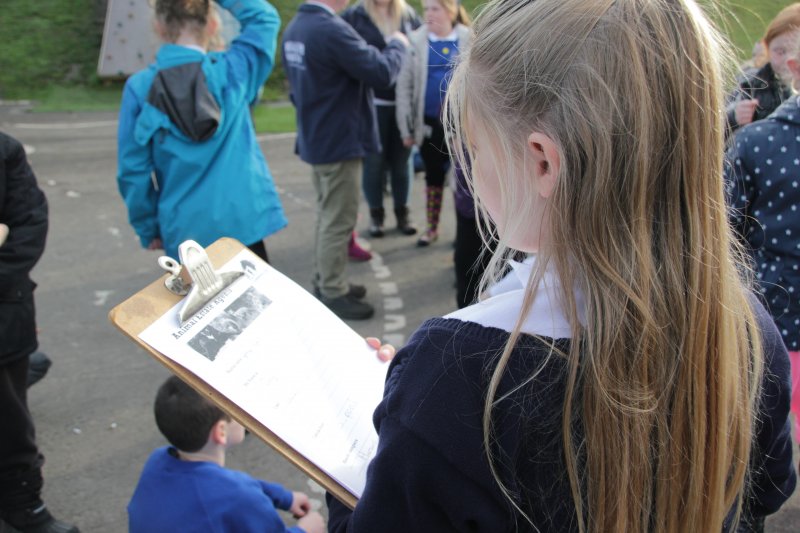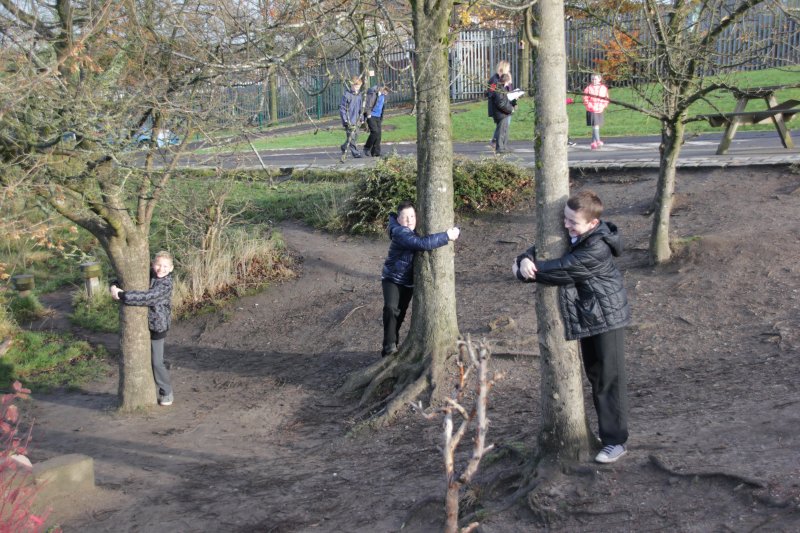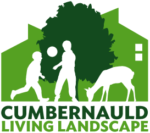Natural Connections II – Habitat Workshops
,
You may remember in my last blog I was telling you about the Pine marten workshops, when we first piloted this out in Condorrat Primary School in June 2014 we realised that we were missing the point of reconnecting habitats for the benefit of wildlife and that we weren’t getting that vital message out to the community. The solution was a second workshop which linked the wildlife to the urban environment and looked at reconnecting green areas such as woodlands and parks to create a mosaic of varied habitats.
The Habitat workshops asked children aged 8-12 years to assess their outdoor area to discuss whither the area was good or bad for wildlife. I must admit I didn’t expect children of that age group to be so savvy on wildlife persecution, animal reintroductions and invasive non-native species, I learned quickly! On the whole all the areas surveyed were good for wildlife phew! But the children did raise very valid concerns and plenty of ways to improve their greenspaces.
The second part of the day asked the children to become Animal Estate Agents and think of shelter, available food and water and the possible dangers to them, they really enjoyed this activity with some showing there predatory sides possibly a bit too much! Again this led to much discussion and has given the Eco-committees plenty to think about when they come to improve their school grounds.
 Pupils from Condorrat Primary working as Animal Estate Agents – Looking after the best interest of our wildife
Pupils from Condorrat Primary working as Animal Estate Agents – Looking after the best interest of our wildife
Finally the children participated in a friendly game of Eco Musical Chairs, I think this was the highlight or their time with us to be honest! This game simplifies habitat fragmentation zzzzzzzz, wow I see a few of you all nodding off already. Wakey Wakey! Here is how it works, Imagine a row of chairs which have been magically transformed into trees and each of these trees is the home to an animal in the woodland. Every time there is a human impact i.e. a path being built or the construction of a road, a tree is lost. The poor animal in that tree is evicted and is now homeless and will shortly go locally extinct. The more we cut down the more animals are lost and can’t come back.
Now, animals need two of the same species to make a family so when we get down to only one animal in that species group we can see that they will soon become extinct, So how can we change this? Nearing the end of the game we ask what can we do to prevent all these poor animals losing their homes? Let me tell you the children would be quite happy to get rid of some of the road systems to help the animals, but there are better ideas where we can all live in harmony. Ideas such as animal tunnels, rope bridges and green bridges, I love the last idea in particular and who knows what imaginative ideas will spring from these children in the years to come. One of them may well be the engineer who builds Cumbernauld first green bridge!
As a thank you to the children for taking part in these workshops each group/school was gifted with a fruit tree, so far Abronhill & Condorrat Primary Schools, the Scottish Spina Bifida Association and the New College Lanarkshire have planted theirs already. There are very exciting things going on in our communities and schools and I am very hopeful for the future of our greenspaces.

